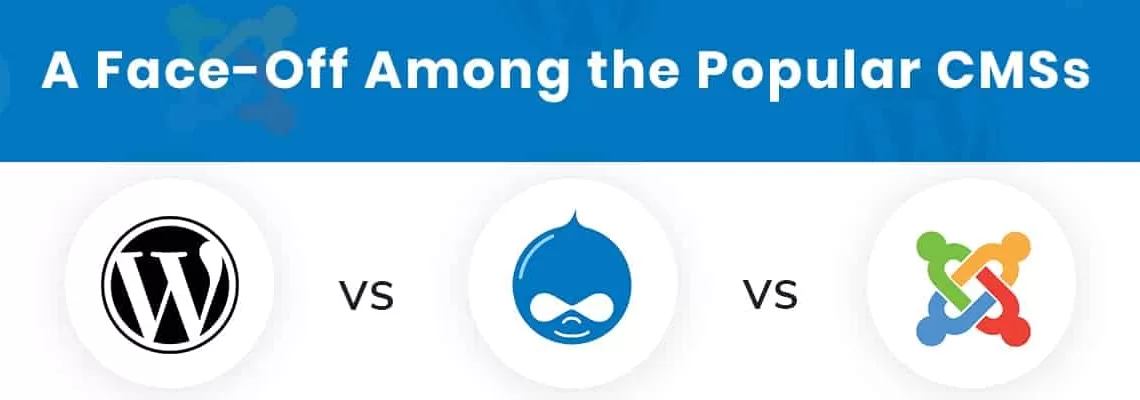Selecting the right Content Management System (CMS) is a critical decision when building a website. Three popular options, WordPress, Drupal, and Joomla, each offer unique features and capabilities. In this article, we’ll compare these CMS platforms to help you choose the one that best suits your website’s needs.
Introduction to CMS Platforms
A CMS is software that allows users to create, manage, and organize digital content without requiring in-depth technical knowledge. These systems are widely used for websites, blogs, e-commerce sites, and more. Let’s explore the features and benefits of WordPress, Drupal, and Joomla.
WordPress
Key Features:
- Ease of Use: WordPress is renowned for its user-friendliness, making it ideal for beginners.
- Plugin Ecosystem: It boasts a vast library of plugins and themes to extend functionality and customize design.
- Large Community: A massive community provides support, documentation, and troubleshooting resources.
- Versatility: Suitable for blogs, small to medium-sized websites, e-commerce, and more.
Use Cases:
- Blogs
- Small business websites
- Content-based websites
Pros:
- User-friendly
- Extensive plugin library
- Large user community
- Excellent for SEO
Cons:
- Can be less scalable for very large websites
- Vulnerable to security risks without proper maintenance
Drupal
Key Features:
- Customization: Drupal is known for its flexibility and scalability, allowing developers to create highly customized websites.
- Content Types: Offers robust content management features, making it suitable for complex websites with varying content types.
- Security: Drupal places a strong emphasis on security, which is crucial for enterprise-level websites.
- Developer-Centric: Developers may prefer Drupal for its flexibility and control.
Use Cases:
- Enterprise websites
- Complex web applications
- E-learning platforms
Pros:
- High degree of customization
- Excellent for complex and large websites
- Strong security features
- Great for managing structured content
Cons:
- Steeper learning curve
- Fewer readily available themes and plugins
- More developer-dependent
Joomla
Key Features:
- Ease of Use: Joomla offers a balance between the user-friendliness of WordPress and the complexity of Drupal.
- Content Management: It provides a robust content management system with a middle-ground approach.
- Multilingual Support: Joomla excels at creating multilingual websites.
- Community: A supportive community and extensions library.
Use Cases:
- Small to medium-sized business websites
- E-commerce
- Community websites
Pros:
- Intermediate difficulty level
- Multilingual support
- Strong community
- Suitable for e-commerce
Cons:
- Not as beginner-friendly as WordPress
- Limited options compared to WordPress’s plugins
- Less suitable for very complex or large websites
How to Choose the Right CMS
The choice of CMS largely depends on your specific needs and goals. Consider the following factors:
- Ease of Use: If you’re a beginner or have limited technical expertise, WordPress is a great choice.
- Scalability: If you anticipate a high level of customization or require a system that can grow with your website, Drupal might be the right choice.
- Content Type: If you’re managing a complex content structure, Drupal is a strong candidate.
- Security: If you’re building a high-security website, Drupal’s focus on security is beneficial.
- Multilingual Support: For multilingual websites, Joomla offers excellent support.
- Community and Support: Consider the strength of the community and the availability of themes and plugins for your specific needs.
- Budget and Resources: Assess your budget and available resources for development and maintenance.
Conclusion
Choosing the right CMS for your website is a significant decision that impacts your site’s functionality, scalability, and maintenance. WordPress, Drupal, and Joomla each offer a unique set of features and cater to different needs. By considering your project’s requirements, technical expertise, and long-term goals, you can make an informed decision and select the CMS that best aligns with your vision for your website.












